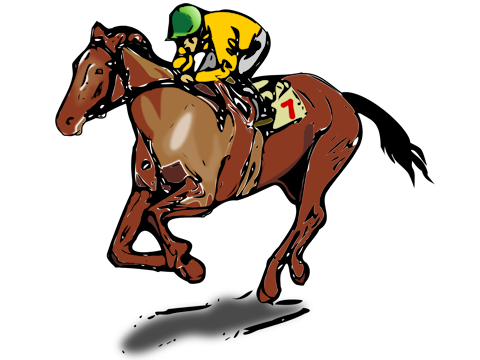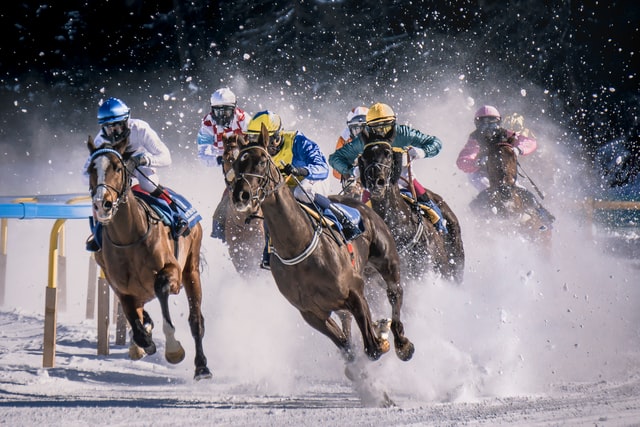 27.01.2021 - It's very unfortunate how the current pandemic affected the sports industry, nevertheless, the horse racing industry. It has been almost a year since the COVID-19 outbreak hit the world, alarming every country and their leaders to make an emergency call to address the pandemic.
27.01.2021 - It's very unfortunate how the current pandemic affected the sports industry, nevertheless, the horse racing industry. It has been almost a year since the COVID-19 outbreak hit the world, alarming every country and their leaders to make an emergency call to address the pandemic.

With all these immediate resolutions and contingency plans, horse racing events are forced to be pushed back and put on hold. Many anticipated racing events scheduled during the first quarter of the year were postponed and even canceled by different racing associations. However, the community stood firm and held on steadfastly, waiting for the current situation adjustments.
After all the challenges, finally, the long wait is over. The horse racing industry was given a chance by the government to resume in a condition to follow all health regulations and restrictions. But what are the changes that have been placed for the racing industry to get back on the field? What races have been affected, and what is the horse racing industry doing to hold out?
How The Triple Crown Leg Was Affected
The news of having the horse racing event resume enthralled many fans and racers. However, despite the celebration, many things were handled before horses were allowed on the racetrack.
Many racing event schedules need to be rearranged as well, even requiring major racing events to adjust. And the prestigious race of the year, the Triple Crown Leg, is not an exemption.
Traditionally, the Triple Crown Leg should start around May, with the Kentucky Derby as the starting race event. The New York Racing Association (NYRA) was forced to impose major changes due to some restrictions and to follow health regulations being mandated.
As per NYRA CEO and President David O'Rourke's announcement, the Belmont Stakes will take up Kentucky Derby's position. The race ran at a shorter distance, 1 1/8 miles from its usual grueling distance of 1 1/2 miles. Schedules were changed as well. The Belmont Stakes ran in June, Kentucky followed in September and Preakness Stakes in October.
The Benefits of the Drastic Changes
Even though the Triple Crown Leg became a primary subject for changes, these temporary adjustments brought better benefits for the industry. The reinvention resulted in producing more mature horses to run the field and a better running schedule, giving the Triple Crown Leg a dynamic that's not expected from it.
The usual long and challenging 1 1/2 miles run of Belmont brought in some freshness for every fan when it was shortened, while the Kentucky Derby felt different for many fans as it was it's first-time to be a mid-race event. And for the Preakness Stakes, it showed more grandeur and a perfect chance to stage a grand finale.
Undoubtedly, all these significant changes that took place last year brought unexpected turns of events for every horse racing fan and trainer. Hall of Famer horse trainer Bob Baffert shared some of his thoughts on the race changes.
As per Baffert, it would have been better if the association followed the usual race arrangement, but there are things that we must compromise to proceed with the event. It's all good that NYRA didn't cancel the event because many fans and bettors would have been disappointed.
The Future of Horse Racing Gets Digitized
With the pandemic still around us, having horse racing back gives every fan a chance to grasp a little sense of normalcy. Now that fans cannot watch racing events in the race stands live, they now turn to different alternatives.
When the government allowed horse racing events to resume last year, fans were tuned in front of their TV monitors and smartphones to watch the race’s live forecast. Additionally, fans relied more on online betting websites to wager. This way, they can still win some money even though they miss the thrill of watching the race in the stands.
According to FanDuel president Kip Levin, the numbers of their wagers and viewers tripled, and it’s looking as intense as the weekend during the Breeder's Cup. That means fans are betting actively and spending more on their bets since they don't have to spend on race stand tickets and trip expenses.
When you look at it from a different perspective, it's still a profitable business, after all. The fans are kept safe in their homes, enjoying the moment while watching and betting on the race event. At the same time, the horses are safely running on the track. At the end of the day, it's a win-win situation.
Takeaway
It has been a tough year indeed for the horse racing industry. The postponement and the significant changes in one of the biggest horse racing events are unforgettable. However, even with all the unprecedented changes and setbacks, it all resulted in a good thing. Horse racing is transformed and adapted to the changes with the current situation.
Moreover, fans found a better alternative to keep the fun and earn more as they jump onto online broadcast and live betting. The pandemic forced the horse racing industry to be formidable amidst great challenges, and it's exciting how it will evolve to keep the sport alive.




